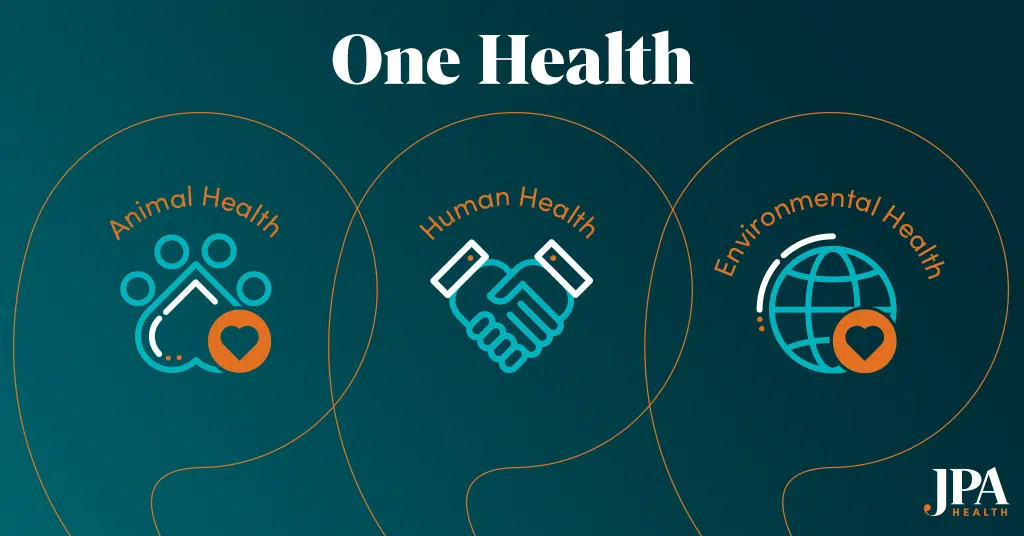
More and more we are seeing pet owners taking on the challenge of travelling with their pets. This summer, we have seen record-breaking temperatures and intense weather changes across the globe. With these continuous rises in temperatures, travelling with your furry friends can sometimes be more problematic for us, our animals, and the environment if certain precautions are not taken.
Animal health has always been a great passion of mine, having cared for a myriad of animals over the years including dogs, cats, horses, tortoises and even chickens at some point. At JPA Health, our mission to make the world a healthier place includes protecting animals. We know that human health and animal health are inextricably linked and that is why we focus considerable efforts in supporting our clients to raise awareness for animal health and welfare.
Key Takeaway
– Pets exposed to diseases abroad
– One Health links gaining awareness
– Prevention key to animal health

Related Case Studies
The concept of One Health is one that comes up often in the animal health industry, but what does it mean and how can it impact you and your pets? In this blog I will explore the links between animal health, human health and the environment and how something as simple as wanting to travel with your pets, can have a significant impact on the health of our animals.
- When we take our pets abroad, we could be exposing them to new exotic diseases not commonly found at home. They may be bitten by a tick or mosquito that is carrying a harmful parasite such as Leishmaniasis, which is carried by sandflies and can infect animals and humans1. Sandflies are found primarily in southern Europe but have now been spotted to be in other tourist destinations such as central France and eastern Europe2. In the US, cases have been found in Texas and Oklahoma, for example3,4. If you are like me and travel with your pets, this can be quite worrying. This disease can cause our beloved pets a myriad of different issues – from skin sores, fever, weight loss and sometimes kidney failure.
- There are many other diseases that can put our pets at serious risk of harm, but it also shouldn’t be forgotten that we can get infected too. We, as humans, have an important role and responsibility to ensure the safety of our environment, animals, and the people around us. In the context of disease, human-accelerated climate change has led to longer feeding seasons for disease carriers like ticks and mosquitos, as well as the expansion of their geographic activity. As a result, pets and other animals are at greater risk of being infected and subsequently pass it on to those around them, including us! This can be described as a #OneHealth issue,one which we all need to work together to overcome. But what can we do to protect our pets and ourselves?
- Prevention and protection are two of the biggest priorities and with National Take Your Cat to the Vet Day (US) and International Dog Day occurring recently, there is no better time to get your pet vaccinated. Vaccination is the first line of defense for your pet and the main way to break transmission of disease to other animals. Also, this month on the 28th of September it is World Rabies Day which highlights the risks posed by this disease to both animals and humans. Education can also play a fundamental role in raising awareness of where we’re going, what the risks are and how our actions can contribute to the spread of disease. Something as simple as a quick Google search letting you know not to take your dog for a walk between dusk and dawn where sandflies and mosquitoes are most active. Your vet should also inform you of best practice in protecting your pets from parasites and thereby preventing these infections.
At the end of the day our pets rely on us to keep them healthy and to safeguard them from possible harm. We, as humans, must actively take a stewardship role over animals and the environment, as the way these three entities interact can have a significant impact on global health.
References:
